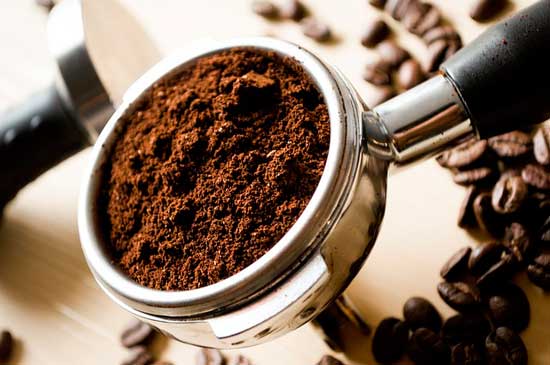Something is happening in the world of coffee and cafés: from climate change to new consumption habits, via product and technological innovations, this is a universe in full transformation, set on winning over a more informed and demanding consumer, with younger generations having plenty to say. Is coffee on its way to becoming a new luxury?
By Marta Renovales, journalist at Profesionalhoreca.com
I go to the supermarket: once again, coffee prices are through the roof. The owner of the corner café, which I still frequent daily, complains about the same thing—even though the price of a cortado has gone up twice already this year. Nearby, a specialty coffee shop has opened, packed with young people despite its higher prices. At the same time, I am bombarded with new ready-to-drink coffee launches. Something is happening.
We all want coffee. We like coffee. And it’s not just us: coffee is winning over more and more people worldwide, including Asian countries, which until recently were not major consumers but are now discovering it. Rising global consumption, combined with production problems due to global warming and higher energy costs, is behind the unstoppable rise in prices: less production, more demand… and the problem is set. According to Grupo Lavazza, in 2024 the cost of coffee rose by more than 70% compared to 2023, both for Arabica and Robusta, and the upward trend continues into 2025, causing an average contraction of about 3.5% in the global coffee market in just the past two years.
“For the industry, this scenario means a significant effort in cost management and the search for efficiency, without giving up the commitment to quality and sustainability,” explains Montse Prieto, Secretary General of the Asociación Española del Café (AECafé).
“The price has gone up a lot, and the effect is most evident in retail, where the price of a pack has more than doubled,” notes Raúl Pont, President of Fórum Café. “In horeca the increase has not been as obvious, since it is spread across the cups served per kilogram. That does not seem to have affected out-of-home consumption, but perhaps there is a shift towards cheaper coffees in supermarkets,” he explains. And he warns: “We must get used to the fact that coffee prices, even if they drop slightly, will not return to previous levels for a long time.”
Is coffee consumption in horeca threatened by rising prices? Pont is clear: “Coffee is a habit, a ritual, a pleasure, a reason to meet up; its cost per cup, despite price increases, remains low.”
Coffee, an increasingly premium product
More demand, less production… and a consumer who is increasingly informed and demanding. Even so, coffee consumption is growing (also in horeca, where in Spain more than 22 million cups are consumed daily), driven by premium solutions.
You only need to look around. The boom in new products and concepts such as specialty coffees, single-origin coffees, ready-to-drink coffee, cold brew, nitro coffee, iced coffee…, as well as beverages, soft drinks, cocktails and desserts made with coffee, form a universe as dynamic as it is tempting, full of added-value products. Not to mention the parallel rise in complementary products such as “free-from” milks and plant-based alternatives to accompany coffee, meeting the demand of those seeking more sustainable and diet-sensitive options. Alongside this, a shift in consumer perception is taking place.
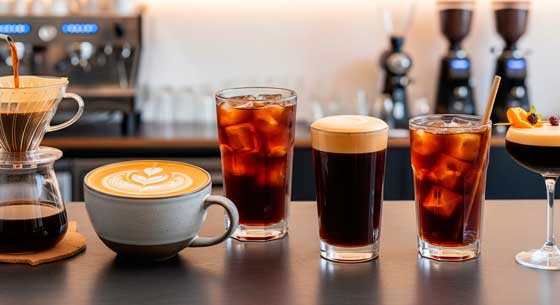
“In recent years we have observed a growing willingness to value quality, origin and method of preparation. In other words, more and more consumers appreciate distinctive attributes in coffee,” notes the Secretary General of AECafé.
“This means coffee combines two dimensions: it remains accessible in everyday life, but at the same time it creates a space for experience and differentiation, boosting demand for all types of varieties,” she explains. And with that come new opportunities for horeca. “New formats represent a clear opportunity for diversification, as they attract a wider audience and adapt to different consumption occasions. Moreover, these coffees align with well-established consumer trends, especially among younger generations.”
A new consumption experience
Part of horeca is already responding to these demands, aiming to win over and satisfy consumers who want personalised drinks in venues offering a carefully designed experience.
Indeed, the out-of-home coffee experience itself is evolving: new coffee shops combine high-quality products, interior design and storytelling—there is always a narrative behind them. New multifunctional spaces are emerging too, such as coworkings, bookshops and shops offering coffee. In all of these, design plays a key role: natural environments, sustainable materials and cosy settings to encourage customers to linger and feel well.
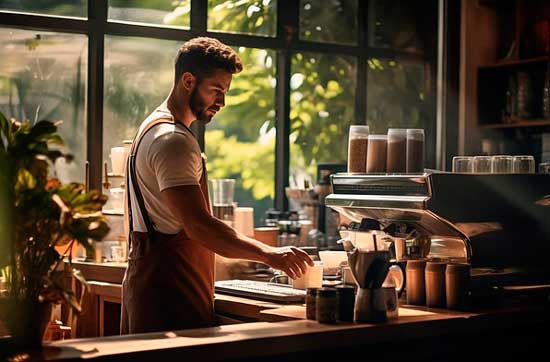
Young consumers in particular seem willing to pay a higher price for coffee, provided the product and venue meet their expectations. For this group, ordering a coffee is no longer just a daily routine, but a personalised, sustainable… and technological experience.
Specialty coffee vs traditional cafés
In this context, as specialty coffee shops proliferate in key areas of our cities, the question arises: do these venues compete with traditional cafés and bars?
“We are seeing more consumption of single-origin and specialty coffees, with consumers becoming interested in quality,” says Raúl Pont. “Without a doubt, the future of coffee lies in quality coffees, in new ways of drinking it and in innovation. But there will continue to be a traditional consumption of coffee for quite some time, coexisting with these new preparations and premium coffees.”
This view is shared by AECafé. “We see specialty coffee as the natural evolution of the market, responding to growing consumer interest in quality, traceability, sustainability and the overall coffee experience,” says Montse Prieto. “It is an expanding segment that brings dynamism to the sector and opens new opportunities for differentiation. Far from replacing traditional cafés and bars, specialty coffee can become an ally. Many establishments are incorporating higher-quality coffees or new brewing methods to meet customer demand. Specialty coffee is enriching coffee culture in our country, offering new ways to enjoy a product that remains essential to daily life.”
Sustainability
Consumers are also increasingly focused on sustainability. “There is more curiosity to know what we drink, where it comes from, how it was prepared… People want to know the story behind their coffee and discover its nuances,” says the President of Fórum Café, who also reminds us that “a coffee doesn’t necessarily need to be certified by a private entity to be good; we have excellent coffees, with their own stories, without certification.”
Sustainability is today a priority for the coffee industry. Companies are driving initiatives across the entire value chain: from responsible farming practices at origin, to more sustainable packaging, to intelligent automation and energy efficiency improvements.
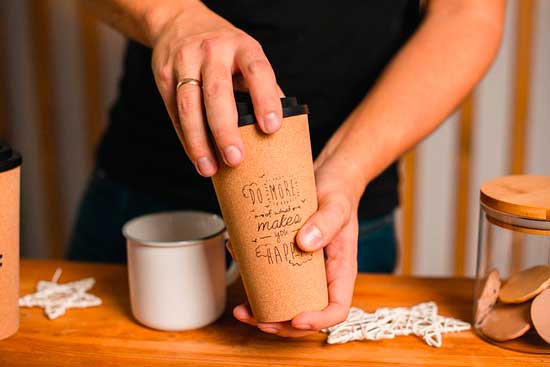
Ultimately, coffee is evolving towards sustainable supply chains, and consumers are beginning to take note. “Companies are making an effort to demand sustainable conditions in coffee cultivation, though this should be communicated more,” notes Pont.
“Consumers are increasingly aware of these efforts and value brands and venues that champion transparency and environmental and social responsibility,” adds Montse Prieto. “Sustainability is no longer a secondary aspect, but a fundamental pillar of the present and future of coffee, connecting with an increasingly informed and engaged consumer.”
A tech re-evolution
Sustainability goes hand in hand with technology. Advanced technologies, such as low-emission roasters or process automation, are contributing significantly both to environmental protection and innovation across the chain: from coffee preparation and storage, to compostable capsules and eco-friendly packaging compliant with new European regulations.
At the point of sale, meanwhile, the use of apps for ordering and payment is growing; contactless solutions are being tested, and artificial intelligence can suggest products based on customer preferences and optimise in-store experience.
Technological innovation is undoubtedly one of the main drivers of growth in the coffee industry. New professional machines incorporate smart technologies to improve coffee quality, ensure consistent standards, and reduce energy consumption, while their ease of use helps solve the challenge of finding and training specialised staff. Connectivity allows operators to monitor equipment performance and condition in real time.
A perfect example of these innovations is the Spaziale S10 coffee machine, which Caffé de Autore will showcase at Hostelco 2026. The machine integrates cutting-edge telemetry technology and combines technological innovation, elegance and functionality for a perfect cup experience. It also includes one year of free IoT connectivity with the Leonardo platform, enabling operators to manage and optimise the machine remotely. Its ECO function ensures efficient, sustainable energy consumption.
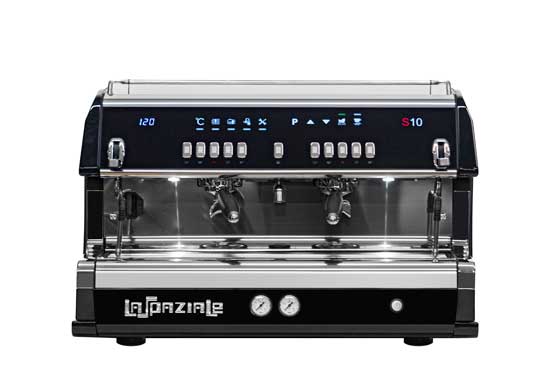
Another example is the Sanremo D8 (https://sanremomachines.es/), notable for its reliability, extraction quality and consistency in cup. It features a steel boiler with hybrid technology, an exclusive innovation that allows precise, independent control of group temperatures to achieve maximum energy efficiency. It also offers Wi-Fi connectivity and IoT integration.
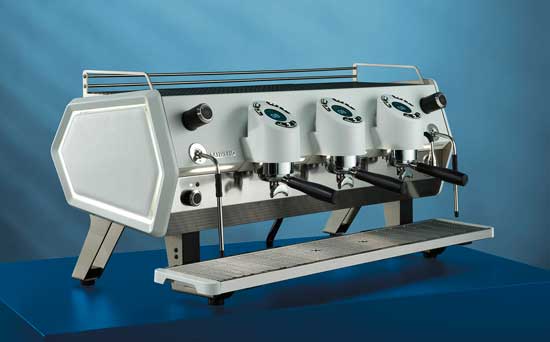
Coffee grinders are also adapting to new demands for consumption, beverage personalisation and sensory experience. For instance, the Sanremo X-ONE is a true “3-in-1”, capable of storing 12 origins in memory and up to 36 recipes. It features micrometric digital adjustment and grinds with maximum precision and care, adapting to different types of coffee: espresso, moka, filter preparations…
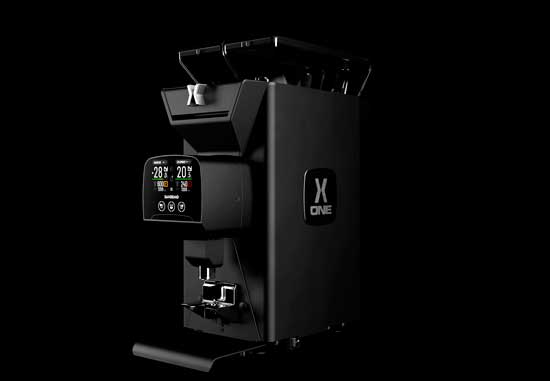
Premium coffee… without specialised staff
The digital transformation is also redefining how Spaniards purchase and enjoy coffee. E-commerce and home coffee subscriptions are gaining popularity, offering convenience and personalisation—something horeca can also take advantage of.
A good example is Incapto (https://incapto.com/), a company offering horeca an integrated solution based on superautomatic machines with IoT technology, able to deliver a premium experience without specialised staff. With a single click, these machines prepare freshly ground specialty coffees and a variety of complementary drinks that enrich any establishment’s offering.

“Our proposal is based on a model of connected machines that allow real-time consumption monitoring, automate orders to ensure effortless restocking, and invoice only for the coffee consumed each month,” the company explains. Incapto will also be present at Hostelco. A flexible, efficient and profitable solution, designed to adapt to any space and need within the hospitality sector.
At Alimentaria + Hostelco 2026, coffee will have special prominence within the Bakery Coffee area, one of this edition’s major highlights, with the participation of national coffee firms (Coffee Center, Cafés Novell, Cafés Pont, Cafés El Criollo…) and international players (Eltar-Mokate, Krako, Samy Coffee…), as well as leading coffee machine manufacturers. The Coffee Stage will be a dedicated space for the coffee world, featuring tastings, demos, talks, championships and competitions.
A visit to the fair will reveal the latest trends in coffee and machines and offer a global vision of a sector marked by the decline of low-cost commodity coffee, driven by climate change, rising prices and growing demand for premium products. An evolution that, importantly, may well turn into new business opportunities for hospitality.



